Nicola Peltz Beckham on “Pouring My Heart and Soul” Into Directorial Debut and Leaving Husband Brooklyn Beckham’s Cameo on Cutting Room Floor
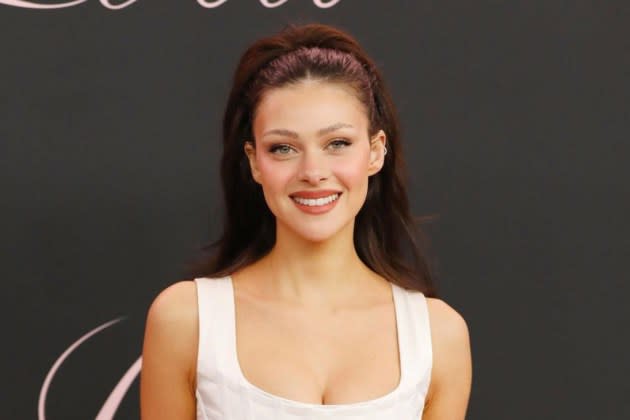
Nicola Peltz Beckham started acting at age 12 but it wasn’t until three years later that she started working with acting coach Nancy Banks. She still relies on Banks to guide performances to this day as well as the tool she packed into her creative process. Every time she lands a new gig, Peltz Beckham journals as the character she’s going to play, writing down their private thoughts, experiences and feelings and answering questions about what their life was like before their name appeared on a script.
“Obviously, 99 percent of the time when you get a script, it doesn’t start the day a character is born. They have a whole life before that. With my journals, I write about my character’s life, imagining the first time they were embarrassed or the first time they kissed someone. What was the first big fight with their mom and what was that relationship like? How many siblings do I have? Where did I go to school and how far?” Peltz Beckham explains to The Hollywood Reporter. “I have formed an entire character and I don’t have to rely only on the scenes that were written for me.”
More from The Hollywood Reporter
That all changed with Lola, Peltz Beckham’s new film that finds the 29-year-old making her feature directorial debut and playing the title role from a script she wrote herself. It’s a heavy lift and a whopper of a part for Peltz Beckham who plays a young woman stuck living at home where she suffers verbal abuse from a hard-drinking yet religious mother (Virginia Madsen) and creepy advances from her mom’s brooding boyfriend (Trick), all the while tending to a sensitive kid brother who likes to play dress up and trying to make ends meet at dead-end jobs like the strip club and supermarket.
The character originated in Peltz Beckham’s journals as she tried her hand at writing a script for the first time, eventually leading her to the director’s chair because she felt an urgent need to have Lola’s story told from a female perspective. Below, the first-time helmer opens up about the challenges of getting an indie film across the finish line, why she cut her husband Brooklyn Peltz Beckham’s cameo, how Quincy Jones and Republic Records CEO Monte Lipman ended up as collaborators and whether she pays attention to the headlines about her father Nelson Peltz’s epic fight with Disney chief Bob Iger.
How are you feeling less than 24 hours ahead of the release?
I’m honestly so excited for people to finally be able to see it, and of course a little nervous. I want everyone to love it. I poured my heart and soul into it, and I hope people feel somewhat connected to the story. That’s all I can ask for.
You should be so proud of yourself. Making a movie is hard enough on its own, but writing, directing and starring in the movie is another beast. Take me through the beginning of the process. Did it really start when you were writing character journals for other films?
My love for writing came from all of my character journals. I always loved writing, but it was never something I was planning to share with anyone, at least at the time. It was a private thing, something therapeutic I just loved doing. Then I sat down one day really wanting to write a script but not knowing where to start. So, I began by writing backstories for characters. That’s something I love about film. I love people. I love humans. I love their stories and character arcs. I started with an outline, not knowing how it was going to evolve. I wrote in chronological order with no ending in mind, that was there was no pressure. It was an interesting process that allowed me to form characters as they went along, and I was able to get to know them so well by the end.
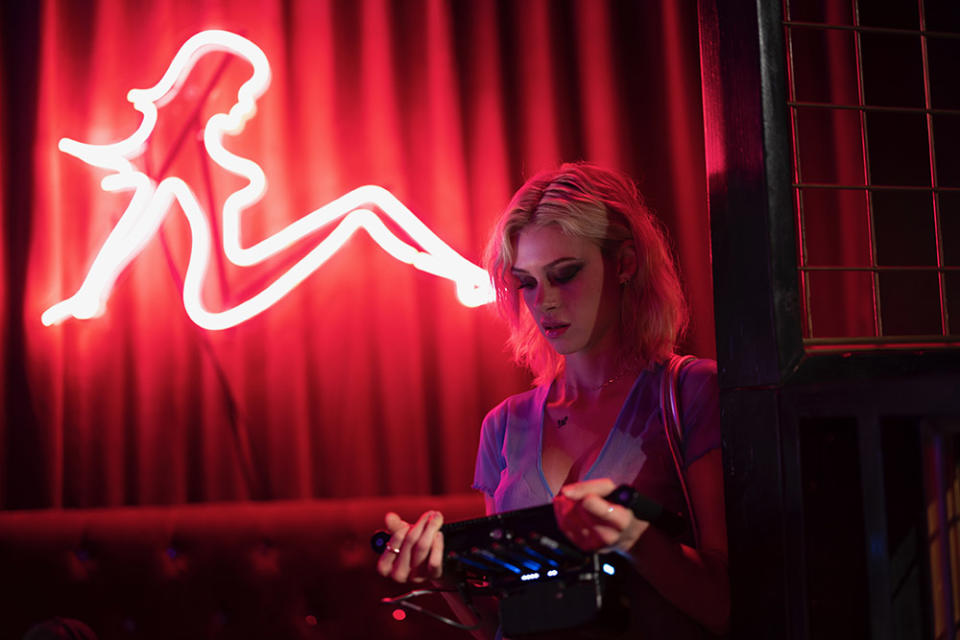
Sounds like a divinely organic creative process. I just realized for people who may not know what the character journals are that we mentioned, can you back up a bit and explain how you started doing that?
I’ve been acting since I was 12, and I’ve had the same acting coach since I was 15. My process with her has been the same since that age. I write journals when I prepare for an acting role. Obviously, 99 percent of the time when you get a script, it doesn’t start the day a character is born. They have a whole life before that. With my journals, I write about my character’s life, imagining the first time they were embarrassed or the first time they kissed someone. What was the first big fight with their mom and what was that relationship like. How many siblings do I have? Where did I go to school and how far? I answer all these different questions so when I get to set, I have formed an entire character and I don’t have to rely only on the scenes that were written for me.
Did you find that it completely prepared you once cameras started rolling?
Yeah, a 100 percent. I always feel like it gives me the history to my scenes or my acting. It made me feel like I could over prepare in a way that had nothing to do with memorizing my lines. I just love to know everything about my character, whether it’s their favorite color, whatever it is. That way, when I get to set, I feel more free to play because I’m prepared.
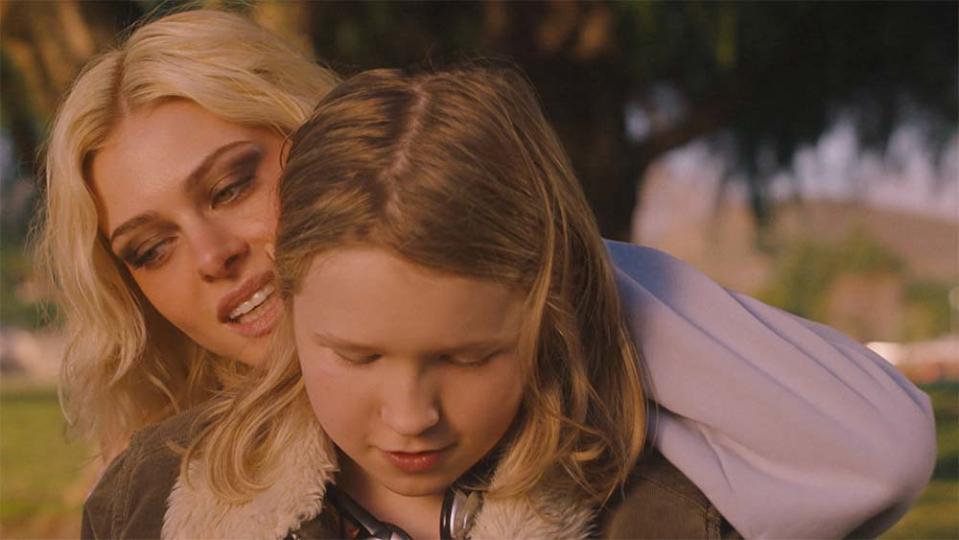
Let’s talk about Lola. It would be so easy to categorize her as this stripper with a tough life. We see all of these traumatic things happen to her but you also showcased scenes where she’s singing in the car with a friend, goofing off at work and having tender moments with her brother. It feels like you wanted to offer a more authentic version of someone’s life rather than focusing solely on trauma. Talk to me about that decision…
I think it’s almost like comparing it to grief, which is a different process for everyone. It’s almost like before the sadness hits, you’re shocked. There are so many different layers to being a human and so many different outlets that a human can have or experience. I didn’t only want to show her in a negative light. You can look at her and think, oh, she slept around for money or you can judge her for being a stripper but actually Lola is a virgin. She’s very uncomfortable dancing. She’s really awkward and not very good at it. You never know what someone’s going through and you never really know their true experience.
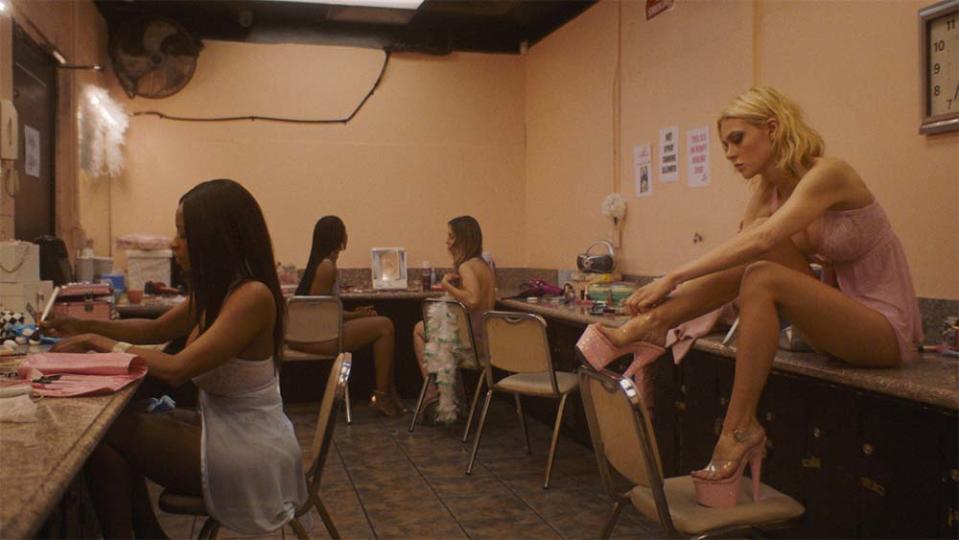
You also play a stripper without gratuitous nude scenes in a strip club. Why did you make that decision?
Yeah, so in one version of the script I wrote about it but it didn’t end up being on screen. There was a lady named Dolly who actually ran the strip club because I wanted it to be a female running the club, not a man. That way it would be a woman who was cheering her girls on so that they felt empowered. It wasn’t like they were being forced to do something they didn’t want to do.
I read that the whole project developed in a similar way, that you were encouraged to become the director of the project by one of the producers. As somebody who hasn’t worked with a ton of female directors before, what was that transition like and what kind of set did you create?
Unfortunately, I’ve actually never worked with a female director. I’m waiting for the day.
I’m glad you fact checked me on that. I didn’t think there were any, but I also didn’t want to say it in case I missed someone on your resume…
No, you’re right. I am dying to work with a female director, and I just think I knew that on this film, I wanted it to have a feminine touch and a female’s eyes. Honestly, I hired as many women as I possibly could. Both my DPs were women. I wanted it to give women as many chances as possible. When you’re dealing with such sensitive storylines like this, it should be a woman directing it, and I wanted my set to feel really safe. I didn’t want [Luke David Blumm] to ever feel pressured in a scene. Like, “You have to cry in this scene.” I never told him that. I always told him, “Try not to cry.” In life, you never try to cry, you always try not to cry when you’re actually upset about something.
That took all the pressure off of him. If there was a line that didn’t feel authentic or something that didn’t feel real, I wanted everyone to be able to come to me and say, “Do you think we can word it this way?” The scene with [Raven Goodwin] in the bathtub was completely improvised. I followed her lead. I said, “Take over.” She was so funny. I was literally trying not to pee my pants because she’s so funny. That’s how I am when my best friend [Angela] is around. I’m constantly laughing.
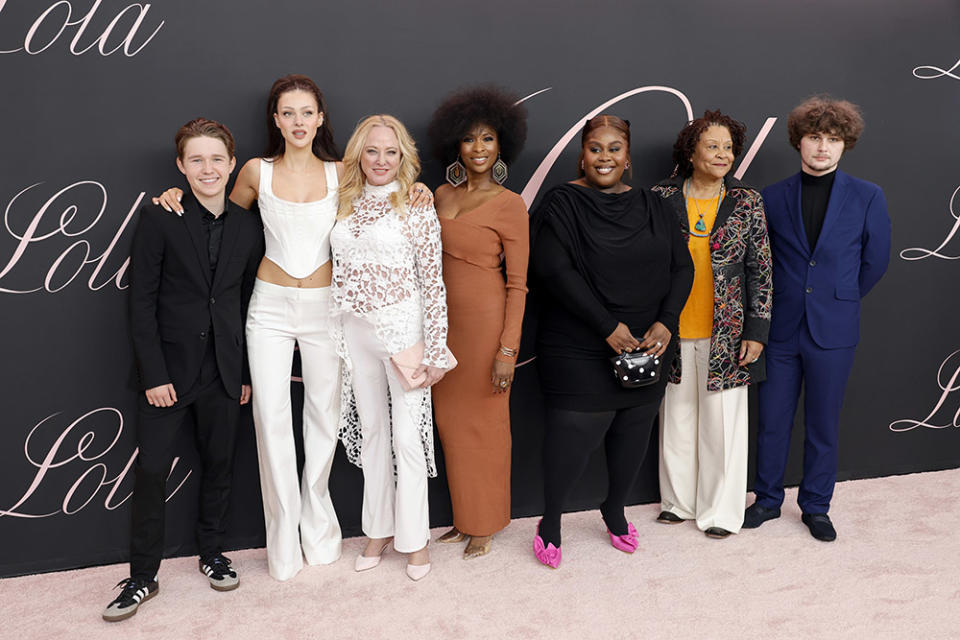
By the way, you’re a good cryer on screen. I’m curious, though, as someone who has seen themselves on screen since they were 12, how was it different to direct your own performance and see yourself on monitors?
For me, I didn’t look at the monitor until I felt like a scene felt good in the moment. On an independent film, we didn’t get that many takes anyway, only about two or three takes and that was about it. When it felt good, then I would watch it back in the monitor. I’m a super visual person, so for me, watching it back, even for myself, I can see in about five seconds if it feels fake or phony or forced. Even if another director was explaining something to me and they wanted to show me the monitor, I wouldn’t be scared to look. I would want to understand what they’re saying. It helps me.
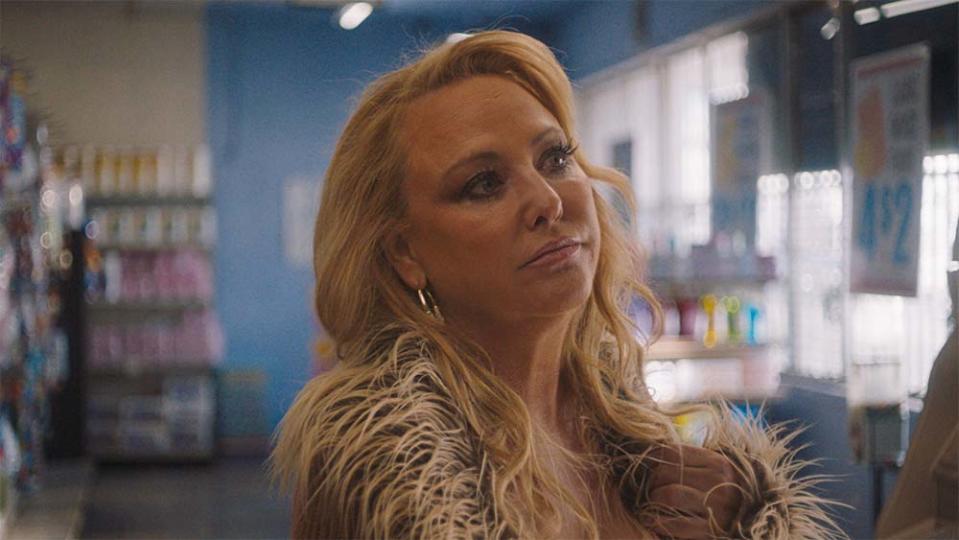
It was a nice surprise seeing your brother, Will Peltz, pop up in a quick scene. What were the conversations like to get him in the movie and did you try to cast your husband or any other family members?
I wanted my brother to have a much bigger part, but the thing is, to anyone who might not know he’s my brother they might be thinking to themselves, wait, why didn’t she end up with that guy? That guy seems great and he’s so handsome. But, like, OK, that would not work out. Brooklyn is actually really upset that he did get cut from his one little cameo. He had one line, “Hi,” but he kept saying it in a British accent and he was staring directly into the camera. I was like, oh God, we have to move on, good lord. So, Brooklyn ended up on the chopping block. But I couldn’t have done any of this without him because he was such a massive support to me every day on set which I’m so appreciative of.
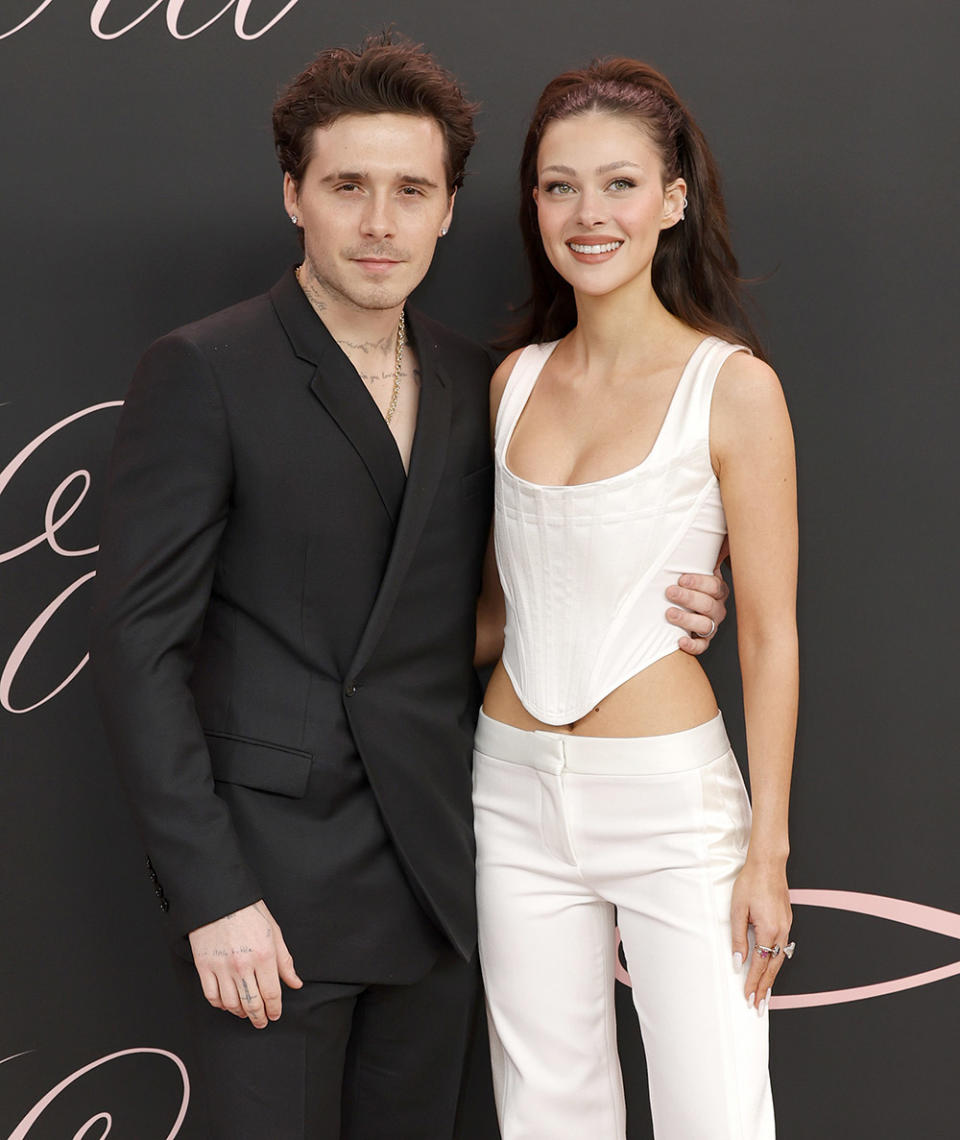
You had support from some other very impressive names. I scanned the credits and noticed Monte Lipman, Republic Records CEO, and Quincy Jones. Can you share how you got these Hollywood heavyweights on board?
They both came on after I shot Lola. I sent them the film and I have literally no words to even express how grateful I am that they both jumped on this and said they wanted to be a part of it. It meant the absolute world to me. The fact that Quincy Jones has his name on my film means so much to me. I admire him and his work so much, everything he has ever touched is so amazing.
It must feel even better knowing you finished. I read that the film faced many challenges in getting across the finish line, from the pandemic to financing issues. Was there ever a moment you thought it may completely fall apart?
Oh, of course. Every second of the day I was like, oh my God here’s another problem. Honestly, being a director is you just come to expect that every single day you will have 10 new problems. Then you go to the next day, and there are 20 problems. You have to just keep your cool and try to keep everyone’s spirits up while you deal with the problems. Being a director is being a problem solver. One day there was a car chase, another day it was a storm. We also shot in the middle of COVID, and you’re trying to bond with everyone but you have a mask on and are standing six feet apart. We didn’t have one positive test, which was incredible, but a lot of our budget went to testing to keep everyone safe. With an independent film, time is a struggle and I had to walk through every day trying to stay present and not panic when we were losing time. It’s just a lot of problems.
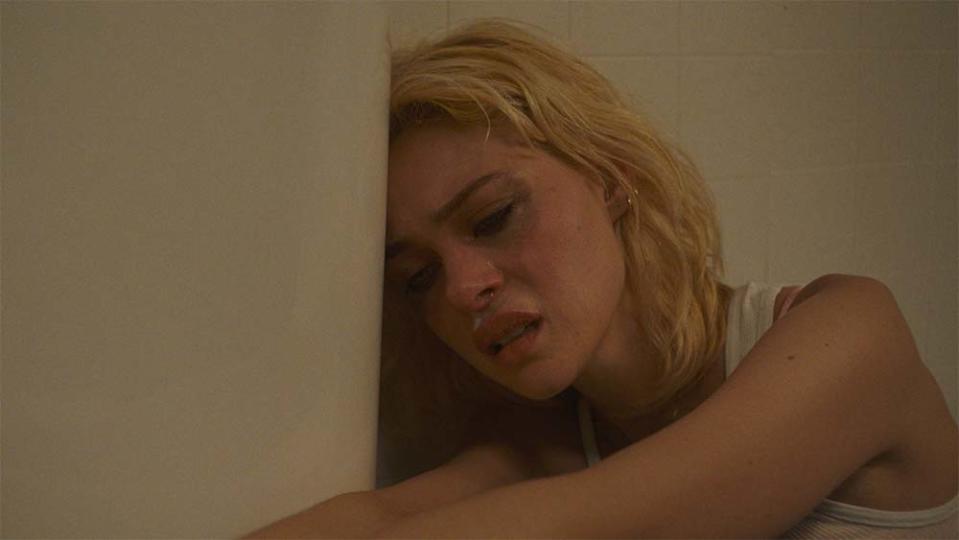
You made it. I saw that you celebrated at the Beverly Hills Hotel with a premiere and party. I read in Vogue that a highlight of the night was dancing with your mother-in-law Victoria Beckham to “Spice Up Your Life.” Tell me more about that night and what it meant to you to have your family there…
I have six brothers and one sister, so to just wrangle my family alone under one roof is nearly impossible. For everyone to come out and support me meant the absolute world. For Victoria to fly out and for Cruz to be there and support me, it means so much to me. I was talking to everyone all night and I didn’t even sit down once. I was talking, chatting and then the last 45 minutes of the night, I realized that, oh God, I really want to dance. Brooklyn and I ran over to the DJ and asked if they could play “Spice Up Your Life.” Victoria came over and we had a dance party at the end with my sister. It was really fun.

You’ve obviously presented acting work to your family before but I imagine this film being your baby made that experience feel differently. Were you nervous? Lola is a tough character, she’s dancing, snorting cocaine, there’s a [spoiler alert] scene. There are scenes that might be uncomfortable to watch with your family. How did it feel to present Lola’s full story to your family and friends?
My mom was with me every single day on set. I kidnapped her and made her come to L.A. and be with me, and I couldn’t have done it without her. So, she had seen the film just as many times as Brooklyn, which was a million. My dad, [Nelson Peltz], has never seen the film, so I was a little bit worried about that. There were moments where I felt like, oh no, he’s not going to like this. He said it was definitely hard to watch, but said he was proud of me. He told me that as long as I work hard at whatever I love to do, then he’s super proud.
Speaking of your father, his name has been in the headlines a lot lately for a battle with Disney and Bob Iger. Do you pay attention to the headlines? Do you have conversations about how his battles with Disney could impact your career as somebody whose last acting job was for Hulu [in Welcome to Chippendales]?
Honestly, and this is a very honest answer, I don’t follow any of that. My head has been so wrapped up in my own work. I just look at him as my dad and I love him very much. I’m just proud of him for whatever he wants to do.
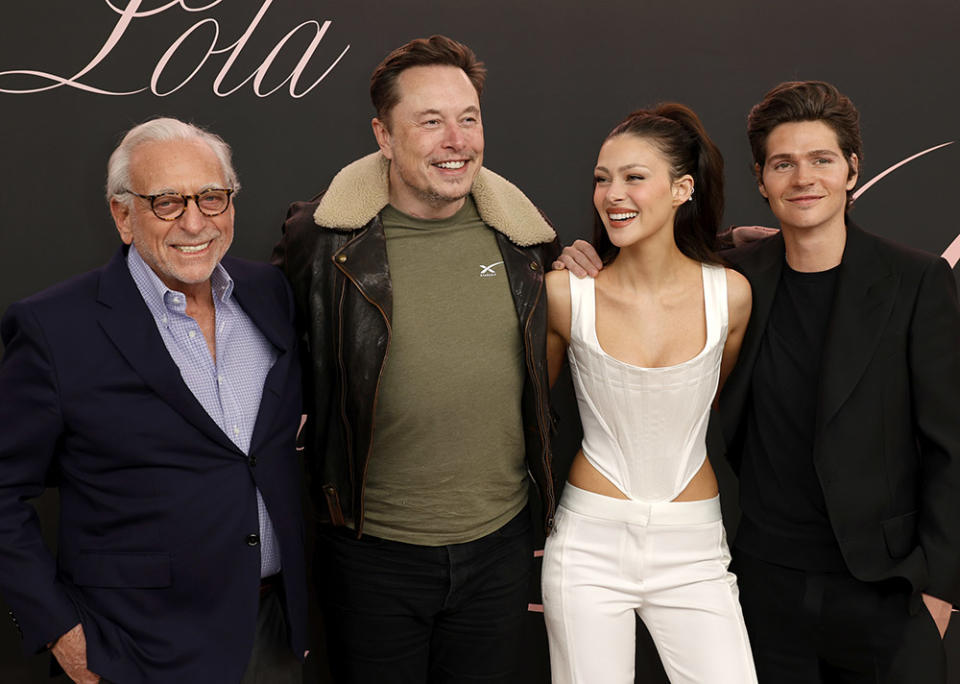
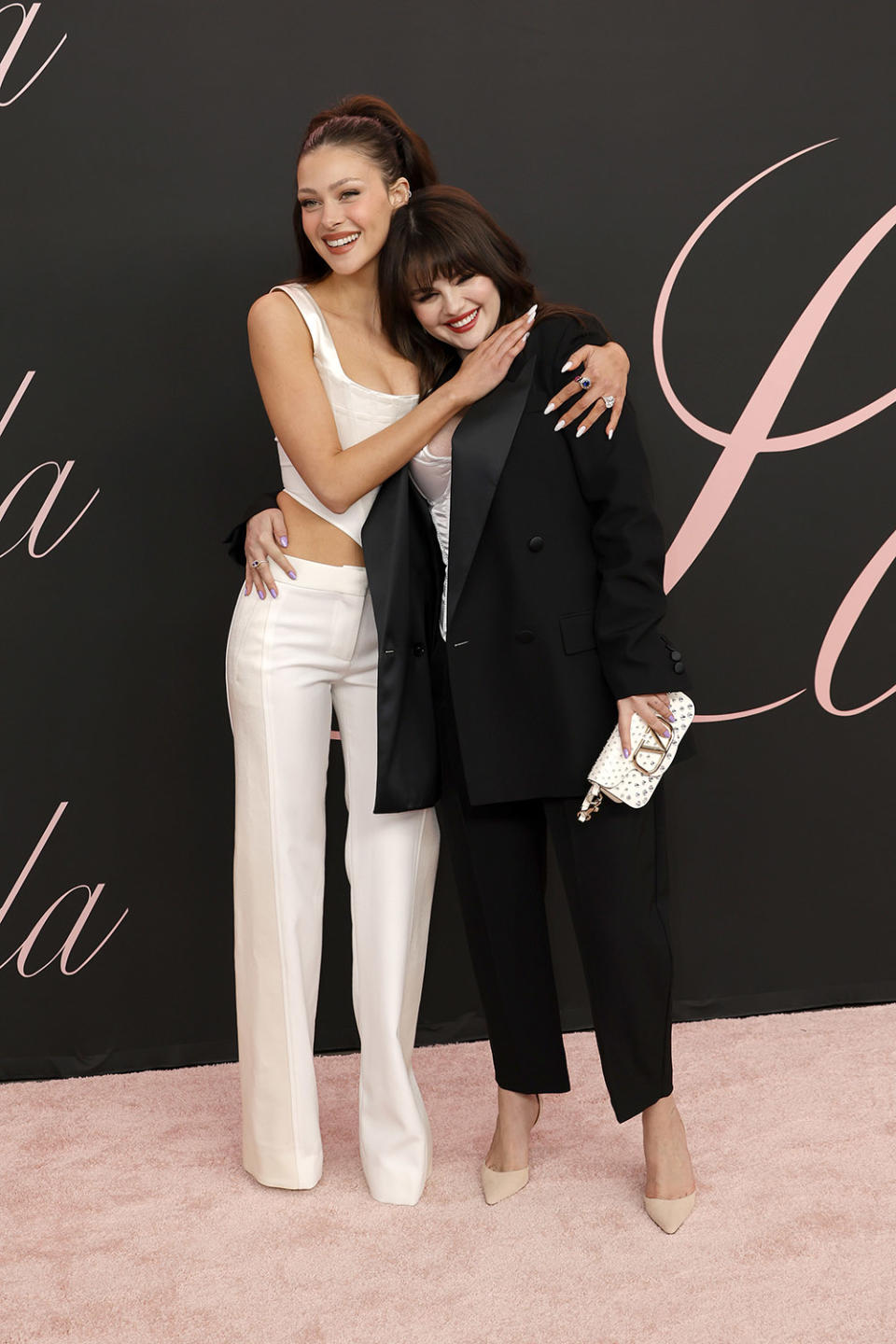
Interview edited for length and clarity.
Best of The Hollywood Reporter

 Yahoo News
Yahoo News 
